By May Boeve
Today was an unusual day for me. It started with a journey into West Java, Indonesia, to a community in Cirebon that is fighting to stop a coal plant already in existence and another on the way. The day was spent speaking with community members and familiarizing ourselves with the people who are campaigning to stop the project, as well as what makes Cirebon unique. The following day we visited another community in Indramayu, where we met communities whose health have been severely impacted by a coal plant financed by the Japan International Cooperation Agency. The day ended with some discouraging news from my own country–where Trump is rumored to make approval for the Keystone and Dakota Access pipelines much easier.
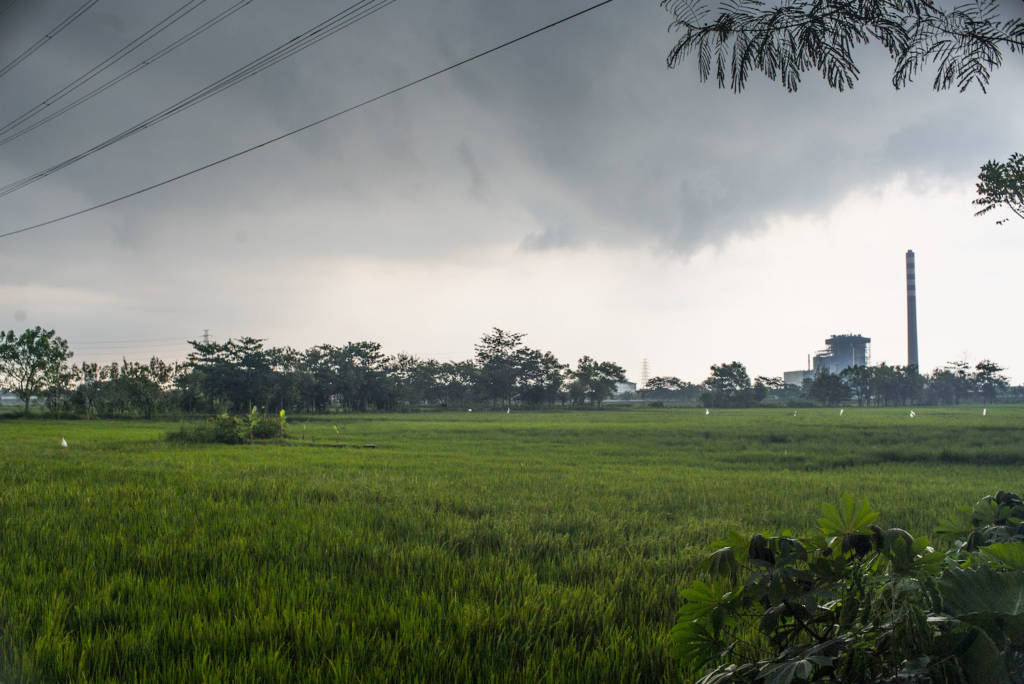
Black clouds over Cirebon coal power plants seen from Kanci village, Cirebon regency, West Java province Photo Ardiles Rante
There are so many struggles around the world like this–where people have fought hard to protect the places and people they love–to preserve something about a place that makes it safe for the future–be that the water supply, the pollution, or the impact on the climate, which affects us all.
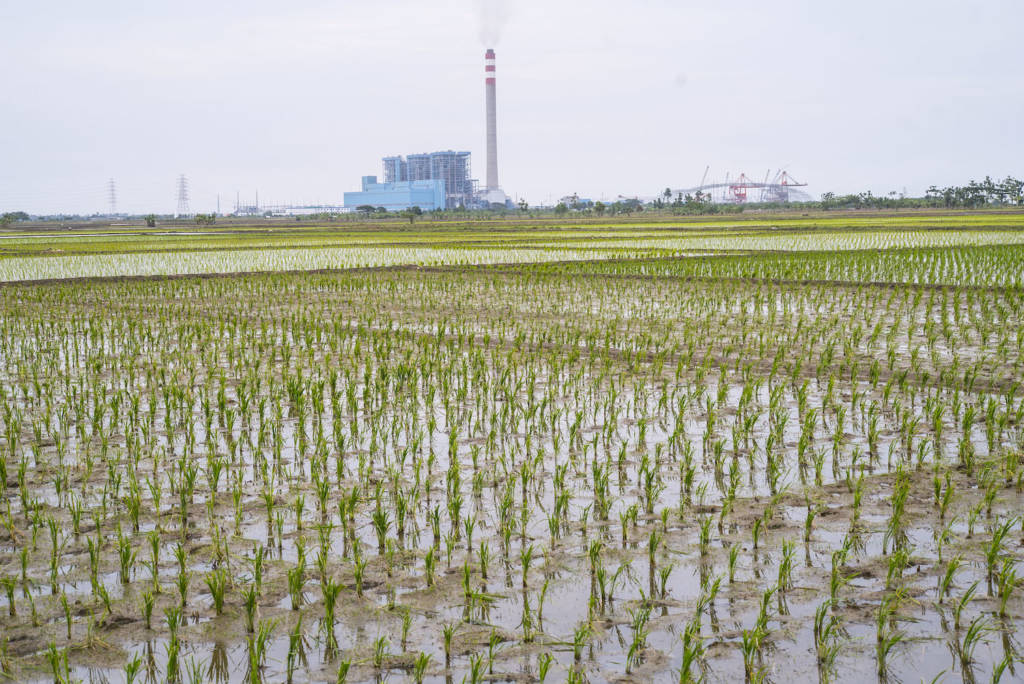
A paddy field near the Indramayu coal-fired power station in Mekarsari village, Indramayu regency. Photo: Ardiles Rante
In Cirebon, Indramayu and throughout Indonesia, we learned specifically about what happens to fishermen and the people who depend on them–when there are no more fish. In this case, we learned that Cirebon is famous for a type of shrimp paste–trasi. I even read about it when searching for general info about Cirebon on Wikipedia. Trasi is to Cirebon as croissants are to Paris. The trouble is, the coal plant is situated right on the water, and once it was built, fishermen, like the person we met today named Dusman, no longer had full nets of shrimp. Dusman even shifted his livelihood to start mining for salt, only to find the salt covered in coal ash and therefore unusable.
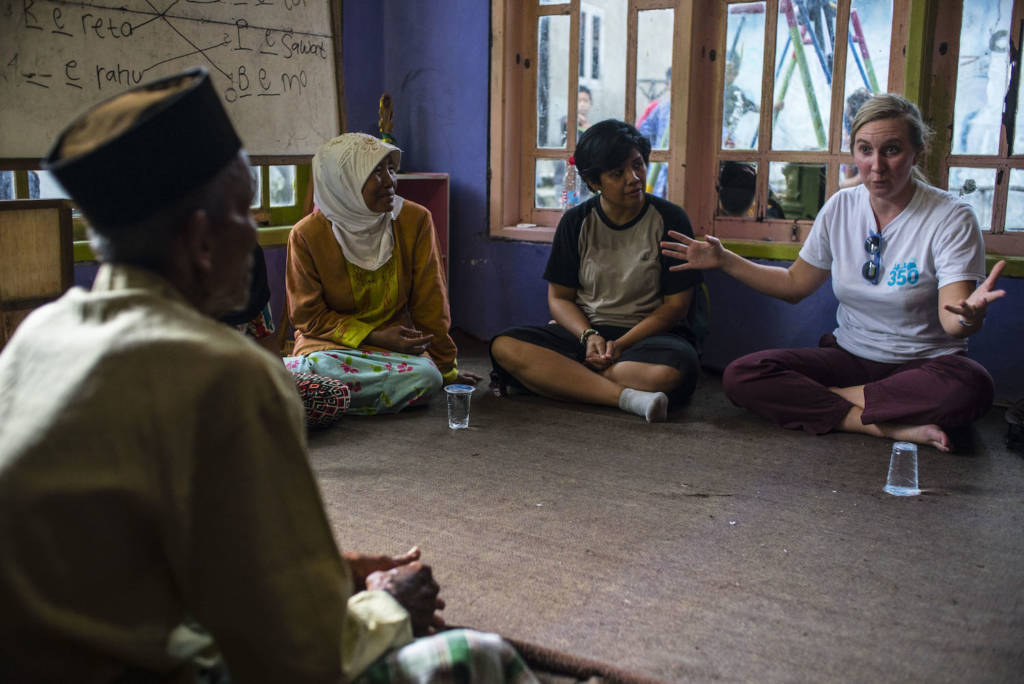
May Boeve, talks with local community representatives in Kanci village, Cirebon regency about the impacts of coal to their health and livelihood. Photo: Ardiles Rante
Dusman and his neighbors are being supported by many of our partners–among them Walhi, Jatam, and Greenpeace, all active throughout the country. In meeting with them this week I learned that these two plants in Cirebon are 2 of about 109 that are proposed to bring 35,000 MW of coal online in Indonesia. These projects have lots of support from the government where environmental impact assessments are being waved aside, and lots of financing from investors, particularly in Japan.
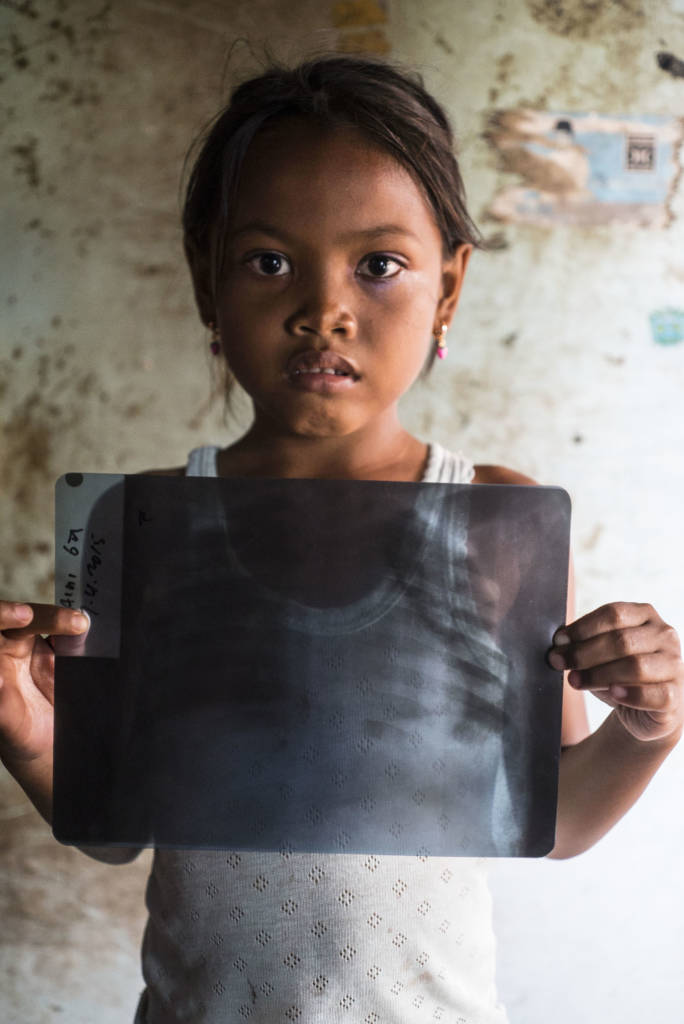
8 year-old Aini holds her chest X-Ray, showing specks in her lungs at her home near the Indramayu coal-fired power station in West Java. Photo Ardiles Rante
From here I head to Japan to bring this story to a series of events 350 Japan is hosting on the topic of coal finance. Now I can see with my mind’s eye exactly what happens when individuals in Japan set up their checking accounts with banks who invest in these projects. It is our hope that as people learn more about the impact, and that they have alternative banking options, the financing will no longer be readily available. This, combined with the opposition on the ground, could, we hope, set a different course for Indonesia’s energy needs. Right now coal is presented as the only option–but we know from so many other countries, like Germany, China, and Turkey, that there are other options and people can turn away from coal toward renewables.
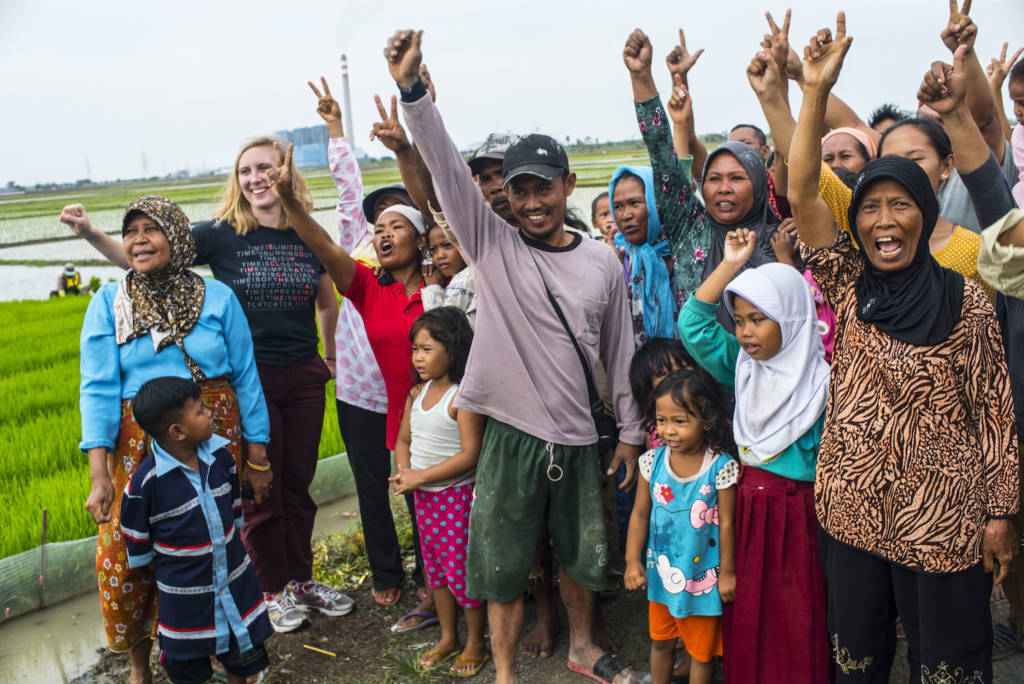
May Boeve, co-founder of 350.org raises her fist in solidarity with the communities in Indramayu. Photo by Ardiles Rante
Right now, my heart is heavy knowing that each day there can be setbacks–like the news today about the struggle in Cirebon and Indramayu and how it is taking money out of people’s pockets and an entire cultural touchstone out of their stories. But I remember how the meeting ended with Dusman–he gave us a blessing, said he would keep us in his prayers, and encouraged us to keep up our spirits, keep up the fight–with a smile on his face.
